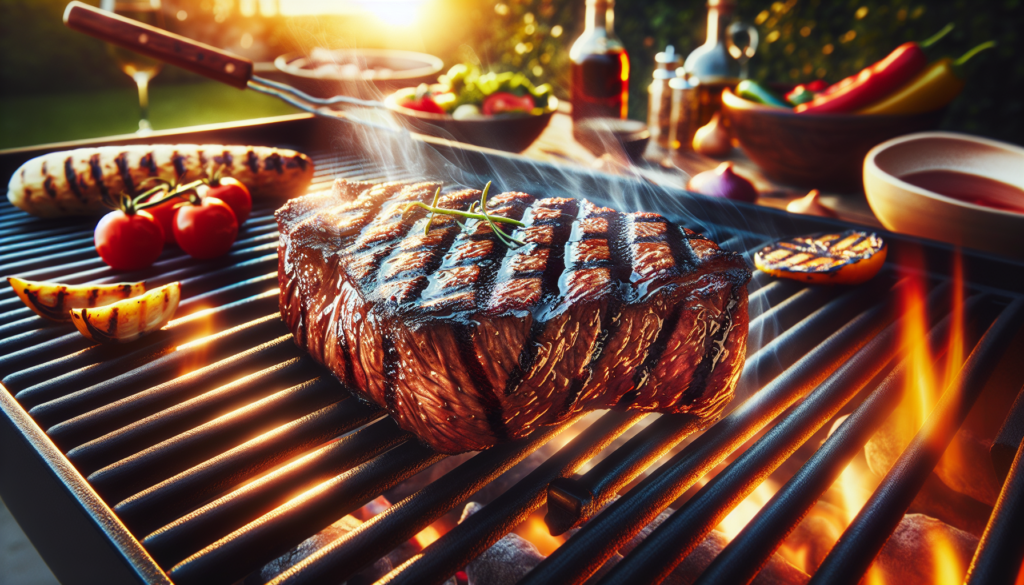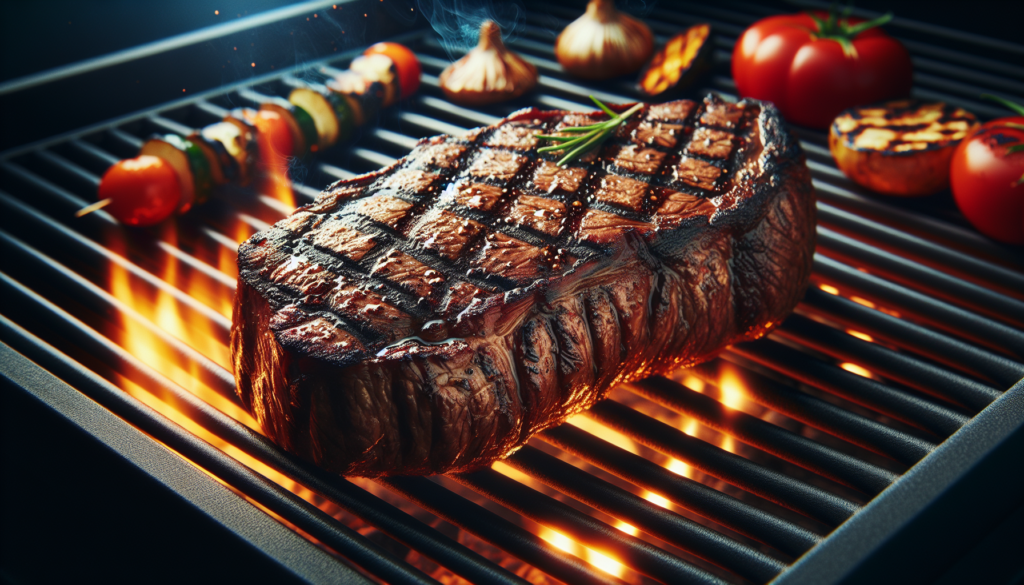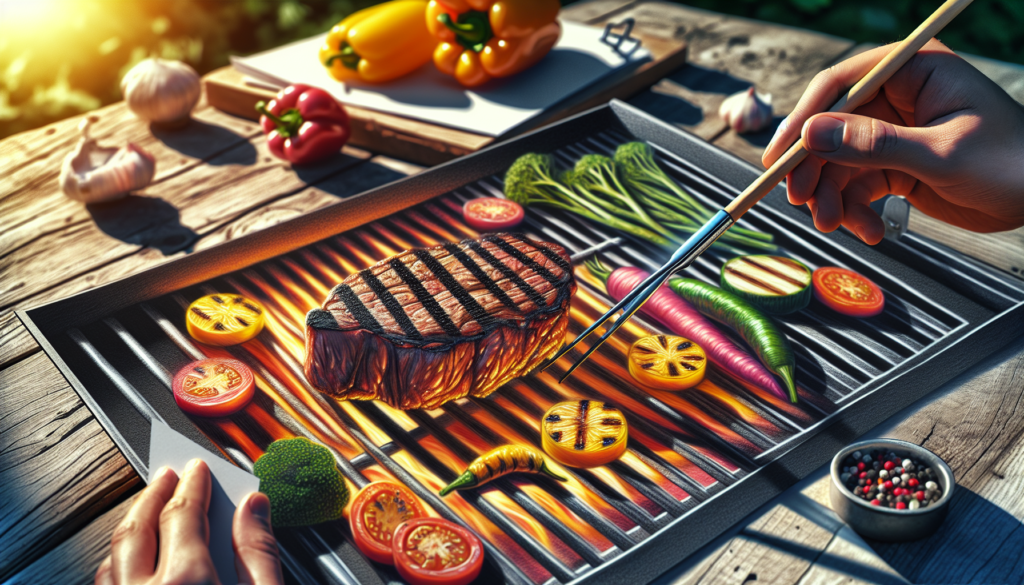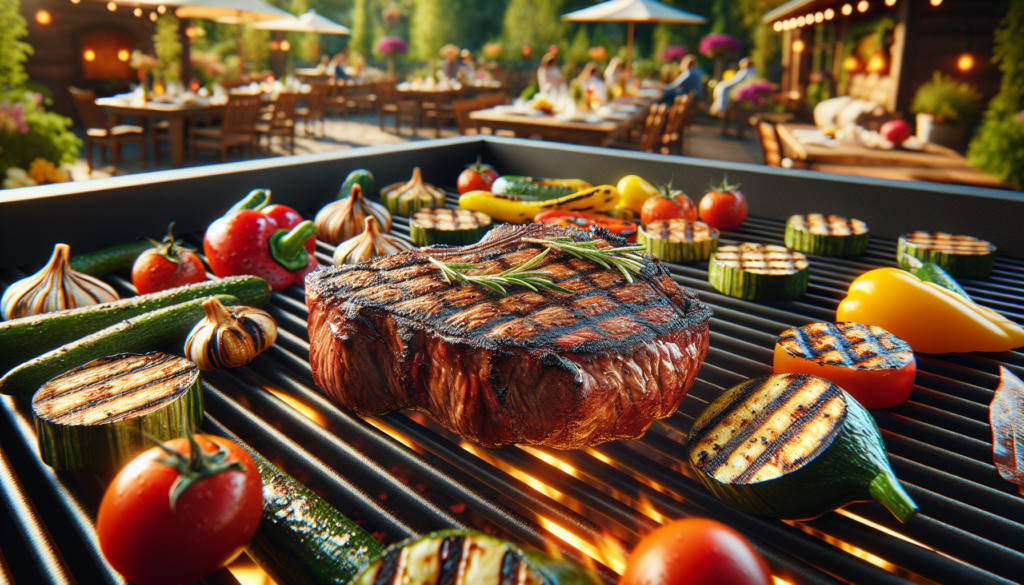Imagine yourself standing in your backyard, surrounded by the mouthwatering aroma of sizzling barbecued meats. As the designated pitmaster, you’re eager to impress your friends and family with your grilling skills. But before you unleash your inner grill master, take a moment to read these 10 essential tips that will help you avoid common grilling mistakes. From mastering the art of temperature control to the importance of marinating, this article will equip you with the knowledge you need to become a grilling pro. So grab your apron, fire up the grill, and get ready to create delicious, perfectly cooked BBQ dishes that will leave everyone begging for seconds.
Choose the Right Grilling Equipment
When it comes to grilling, having the right equipment can make all the difference in the outcome of your meals. The first step is to ensure you have a quality grill. Look for a grill that is sturdy, durable, and made from high-quality materials. Whether you prefer a charcoal grill, gas grill, or pellet grill, make sure it fits your needs and preferences.
Next, it’s important to select the appropriate grilling method for the food you plan to cook. Direct grilling is best for smaller cuts of meat and foods that cook quickly, while indirect grilling is ideal for larger cuts of meat that require longer cooking times. Familiarize yourself with both methods and choose the one that suits your cooking style and the specific dish you’re preparing.
Lastly, use the right fuel for your grill. Charcoal grills require charcoal briquettes or lump charcoal, while gas grills need propane or natural gas. Make sure to follow the manufacturer’s recommendations and use the appropriate fuel for your grill. This will ensure optimal performance and prevent any safety hazards.
Prepare Your Grill Properly
Before firing up the grill, it’s crucial to clean and inspect it thoroughly. Remove any leftover residue and grease from the previous grilling session using a grill brush or scraper. Inspect the grill grates, burners, and other components for any signs of damage or wear. Taking the time to clean and inspect your grill will not only help prevent flare-ups but also ensure that your food cooks evenly and without any unwanted flavors.
To achieve the perfect grilling temperature, preheat your grill before cooking. This step is especially important for getting those beautiful sear marks and ensuring even cooking. Simply turn on the grill and let it heat up for about 10-15 minutes, or until it reaches the desired temperature. This will also help to kill any bacteria on the grates and create a non-stick surface.
Another pro tip for preventing food from sticking to the grill grates is to oil them before cooking. Using a pair of tongs, soak a folded paper towel in a high-heat cooking oil such as vegetable or canola oil. Rub the oiled paper towel over the grates to create a thin and even layer. This will not only prevent sticking but also add a touch of flavor to your grilled dishes.

Select and Prepare Quality Ingredients
The key to a delicious grilled meal starts with selecting fresh and high-quality ingredients. Choose meats that are well-marbled, free of blemishes, and have a vibrant color. When it comes to poultry, opt for organic or free-range options for the best flavor and texture. For a vegetarian option, select fresh vegetables and fruits that are in season and at their peak freshness.
Before grilling, it’s important to trim excess fat from your meats to prevent flare-ups and ensure even cooking. Marinating your meats is another great way to infuse flavor and tenderize tougher cuts. Create your own marinades using a combination of herbs, spices, oil, and an acidic element like citrus juice or vinegar. Allow the meats to marinate for at least 30 minutes or up to overnight for maximum flavor.
When it comes to grilling vegetables, choose firm and fresh produce. Wash and dry them thoroughly, then cut them into even-sized pieces to ensure even cooking. For added flavor, toss the vegetables in a marinade or drizzle them with olive oil and sprinkle with your favorite seasonings.
Master the Art of Seasoning
Seasoning your meats properly is a vital step in achieving a mouthwatering grilled dish. Generously season both sides of your meats with salt and pepper or your favorite seasoning blend. Don’t be afraid to get your hands dirty and massage the seasonings into the meat, ensuring that every inch is coated. Remember that these seasonings will enhance the natural flavors of the meat and develop a delicious crust when grilled.
To bring your grilling game to the next level, experiment with different spice blends and rubs. Whether you prefer a spicy rub for meats or a savory blend for vegetables, there are endless possibilities to explore. Create your own signature blend or try out some pre-made options available at your local grocery store. The key is to have fun and find the flavors that complement your taste preferences.
Keep in mind that seasoning takes time to penetrate the meat and infuse it with flavor. After seasoning, allow your meats to sit at room temperature for 15-30 minutes before grilling. This will ensure that the seasoning has enough time to work its magic and result in a tender and flavorful dish.

Maintain Proper Heat Control
To achieve the perfect grill marks and ensure even cooking, it’s essential to create direct and indirect heat zones on your grill. For direct heat, simply light the burners or arrange the coals directly beneath the food. This method is ideal for searing meats and cooking foods that require high heat.
On the other hand, indirect heat is created by turning off one or more burners or by arranging the coals on one side of the grill. This allows for slower, more even cooking and is perfect for larger cuts of meat that require longer cooking times. By mastering the art of heat control, you can tailor your cooking methods to the specific dish you’re preparing.
Using a grill thermometer is another invaluable tool for maintaining proper heat control. Place the thermometer on the cooking grates to accurately monitor the internal temperature of your grill. This will help you achieve the desired level of doneness and prevent overcooking or undercooking your food.
As you’re grilling, don’t be afraid to adjust the heat as needed. This can be done by adjusting the burner settings or rearranging the coals. By maintaining control over the heat, you’ll be able to cook your food to perfection and impress your guests with your grilling skills.
Practice Perfect Timing
Grilling is a labor of love that requires patience and careful planning. To ensure your meals are cooked to perfection, it’s important to plan and allocate enough time for grilling. Consider the type and thickness of the food you’re cooking and factor in any marinating or resting time.
Following recommended cooking times and temperatures is also crucial for achieving the desired results. Different cuts of meat and types of vegetables require different cooking times. Refer to grilling guides, recipes, or reputable sources to determine the appropriate cooking times for your specific dishes. Remember, it’s better to err on the side of caution and undercook slightly, as you can always grill a little extra if needed.
Using a meat thermometer is a foolproof way to check for doneness and ensure your meats are cooked to the correct internal temperature. Insert the probe into the thickest part of the meat, avoiding any bones or fat. Refer to temperature charts to determine the ideal internal temperature for each type of meat. This will help you achieve the perfect level of doneness, from rare to well-done.

Manage Flare-Ups and Flames
Flare-ups can put a damper on your grilling experience and potentially ruin your food. The key to managing flare-ups is to reduce the oxygen supply. If you’re using a gas grill, simply turn down the burners or temporarily move the food away from the flames. For charcoal grills, use long-handled tongs to carefully move the food to a cooler area of the grill.
If the flames persist and become uncontrollable, it’s important to have a spray bottle or water nearby for emergencies. Never use water on a grease fire, as it can cause the flames to spread and increase the risk of injury. Instead, use the spray bottle to mist the flames and reduce their intensity. Always prioritize safety and have a plan in place to handle any unexpected flare-ups or flames.
Avoid Excessive Peek and Poke
One common mistake many grillers make is constantly lifting the lid and poking at the food. Every time you open the grill, heat is lost, and the cooking process is interrupted. To ensure even cooking and retain the heat, it’s best to keep the grill lid closed as much as possible. Trust your instincts and rely on time and temperature guidelines to determine when it’s time to flip or remove the food.
When it comes to flipping meats, only do it once. Flipping too often can prevent the development of a nice crust and can also cause the meat to dry out. Use a sturdy pair of tongs or a spatula to handle the food and flip it with confidence. Remember, patience is key, and the end result will be well worth the wait.

Rest and Tent Meat Before Serving
Resting grilled meats is a crucial step to ensure optimal juiciness and tenderness. After removing the meat from the grill, let it rest for 5-10 minutes before carving or serving. This allows the juices to redistribute and settle, resulting in a more flavorful and succulent dish.
To further retain the heat of the meat during the resting period, loosely tent it with foil. This creates a warm environment for the meat to rest in and prevents it from cooling too quickly. The foil tent also helps to lock in the flavors and aromas, giving your meat a final burst of deliciousness before it hits the plate.
During this resting period, take a moment to let the flavors meld and develop. This is especially important for marinated meats as it allows the ingredients to infuse and blend together. This final step can truly elevate the taste and texture of your grilled creations, making them a delight to savor and enjoy.
Properly Clean and Maintain Your Grill
Last but certainly not least, proper cleaning and maintenance of your grill are essential for longevity and optimal performance. After each use, take the time to clean the grates and the interior of your grill. This can be done using a grill brush or scraper to remove any residual food particles or grease. Regular cleaning will not only prevent flare-ups but also ensure that your food tastes its best.
In addition to cleaning the grates, it’s important to regularly check and clean the burners and vents of your grill. These components can become clogged with grease or debris over time, affecting the heat distribution and overall functionality of your grill. Refer to the manufacturer’s instructions for specific cleaning recommendations and ensure that your grill is always in top-notch condition.
Lastly, protect your grill from the elements by covering it when it’s not in use. Exposure to rain, sun, and other harsh weather conditions can cause rust and deterioration. Invest in a high-quality grill cover that fits your grill properly and securely. This simple step will extend the life of your grill and ensure that it’s always ready to deliver mouthwatering grilled dishes.
In conclusion, grilling is a rewarding and enjoyable culinary experience that can bring family and friends together. By choosing the right equipment, preparing your grill properly, selecting quality ingredients, mastering the art of seasoning, maintaining proper heat control, practicing perfect timing, managing flare-ups, avoiding excessive peeking and poking, resting and tenting meat, and properly cleaning and maintaining your grill, you can become a true grilling master. So fire up your grill, embrace the sizzling sounds, and let the delicious aroma of grilled goodness fill the air. Happy grilling!
